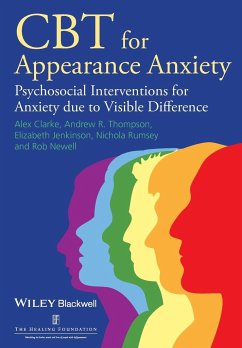
Reproductive Health Psychology
Versandkostenfrei!
Versandfertig in über 4 Wochen
123,99 €
inkl. MwSt.
Weitere Ausgaben:

PAYBACK Punkte
62 °P sammeln!
This volume provides a comprehensive, up-to-date theoretical and empirical background to the psychology of reproductive health.Provides a life span perspective of the psychology of reproductive health and its disorders, from menarche to menopause and reproductive health in older ageFocuses on issues of the individual s reproductive health experience, including reproduction, pregnancy, maternity, and birth, as well as conditions such as PMDD, dysmenorrhea, and events including pregnancy failure, and abortionAcknowledges the wider social context with discussions of poverty, inequality, education...
This volume provides a comprehensive, up-to-date theoretical and empirical background to the psychology of reproductive health.
Provides a life span perspective of the psychology of reproductive health and its disorders, from menarche to menopause and reproductive health in older age
Focuses on issues of the individual s reproductive health experience, including reproduction, pregnancy, maternity, and birth, as well as conditions such as PMDD, dysmenorrhea, and events including pregnancy failure, and abortion
Acknowledges the wider social context with discussions of poverty, inequality, educational and economic status, age, and urban versus rural access
Addresses life style related factors, human rights to choice, information and access, fertility control and reproductive health regulation and health care services
Illustrates topics with empirical data supported with tables and figures
Provides a life span perspective of the psychology of reproductive health and its disorders, from menarche to menopause and reproductive health in older age
Focuses on issues of the individual s reproductive health experience, including reproduction, pregnancy, maternity, and birth, as well as conditions such as PMDD, dysmenorrhea, and events including pregnancy failure, and abortion
Acknowledges the wider social context with discussions of poverty, inequality, educational and economic status, age, and urban versus rural access
Addresses life style related factors, human rights to choice, information and access, fertility control and reproductive health regulation and health care services
Illustrates topics with empirical data supported with tables and figures












